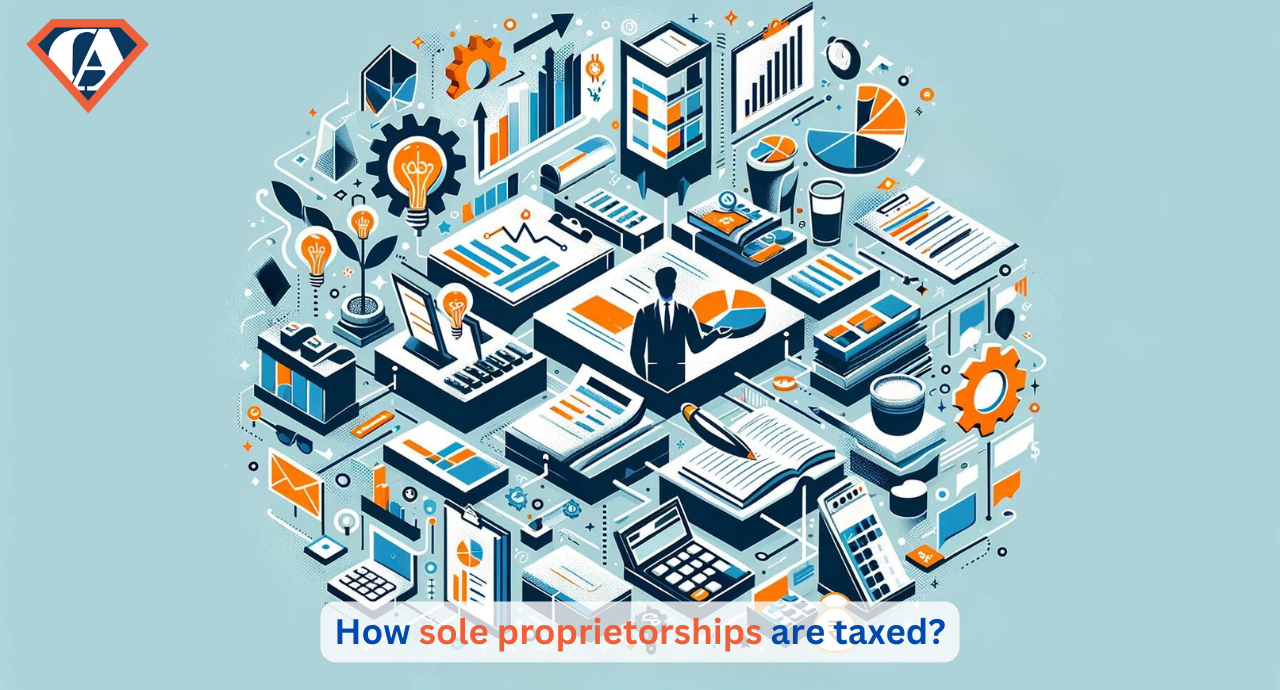Tax Deductions and Exemptions applicable for AY 2023-2024
- Posted By SuperCA
- On 25 February
About
It's critical to comprehend the tax exemptions and deductions that apply for the Assessment Year 2023–2024 as tax season draws near. To promote investments and savings, to lessen the tax burden on individuals, and to assist them lead financially secure lives, the government of India offers tax reductions and exemptions. Taxpayers should take full use of these advantages and seek the advice of a tax expert if they require assistance in comprehending the tax rules and regulations. SuperCA serves as your Tax Savior. Our systems are made to recommend tax deductions and exemptions that apply to income tax returns, as well as to guarantee that clients receive the largest tax refund and do not pay more in taxes than they are required to.
Tax deductions and exemptions applicable for AY 2023-2024
Some of the tax exemptions and deductions that apply for the AY 2023–2024 are listed below:
- Standard deduction: For AY 2023–2024, the standard deduction for salaried people has been raised to Rs. 75,000 from Rs. 50,000 in the prior year. All employees and retirees are eligible for this deduction.
- Health insurance premiums: Individuals may deduct health insurance premiums for themselves, their spouse, their dependent children, and their parents from their taxes under Section 80D of the Income Tax Act. For the fiscal year 2023–2024, the maximum deduction is now Rs. 50,000 for elderly persons and Rs. 25,000 for people under the age of 60.
- Investing in the National Pension Plan (NPS): Section 80CCD (1B) of the Income Tax Act allows for a tax deduction for NPS investments. The deduction cap has been raised to Rs. 1.5 lakh for the fiscal year 2023–2024.
- Investment in Public Provident Funds (PPF): Section 80C of the Income Tax Act allows for tax deductions for PPF investments. During AY 2023–2024, the maximum deduction is still Rs. 1.5 lakh.
- Investing in Equity-Linked Savings Schemes (ELSS): Under Section 80C of the Income Tax Act, investments in ELSS are also tax deductible. During AY 2023–2024, the maximum deduction is still Rs. 1.5 lakh.
- Interest Paid on Home Loans: Under Section 24 of the Income Tax Act, a tax deduction is permitted for interest paid on home loans. The 2 lakh rupee deduction cap will continue in effect for AY 2023–2024.
- Education loan: Section 80E of the Income Tax Code allows for a tax deduction of interest paid on education loans. Until the loan is fully returned or 8 years from now, whichever comes first, the deduction is permitted.
- Contributions to charitable organizations: Section 80G of the Income Tax Act allows for tax deductions on donations given to charitable organizations. Depending on the organization and the type of donation, different deduction amounts apply.
- Leave Travel Allowance (LTA): Tax deductions are provided on expenditures made for travel within India under the Leave Travel Allowance (LTA). Two travels may be written off in a span of four years. The present period spans 2018–2021.
- Home Rent Allowance (HRA): HRA allows salaried individuals to deduct taxes from their rent payments. The maximum deduction varies depending on the person's wage and city of residence.
Other Things to be taken care Of.
It is significant to remember that there are restrictions and requirements on these tax exemptions and deductions. To be eligible for these deductions and exemptions, people must meet the requirements and submit the required paperwork.
Together with the aforementioned tax breaks and exemptions, the government has also unveiled several new regulations for AY 2023–2024. The introduction of pre-filled income tax returns is one of the significant improvements. The government will already include information on the taxpayer's income, tax deductions, and taxes paid on the tax returns. As a result, there will be fewer mistakes and more precision in the tax returns.
The implementation of a new tax structure is a significant development as well. Individuals have the option, under this system, to pay less tax by forgoing some tax breaks and exemptions. While the new tax law offers exclusions and deductions under Sections 80C and 80D of the Income Tax Act, it does not offer lower tax rates. For people who don't have major investments or costs that qualify for tax deductions and exemptions, the new tax system might be advantageous.
Before making a choice, it is crucial to carefully assess and compare the tax liability under the old and new tax systems. Before choosing the new tax system, people must also take the long-term effects on their assets and savings into account.
Conclusion
Tax exemptions and deductions have the potential to dramatically lower individual tax liabilities while promoting savings and investment. It's critical to comprehend the prerequisites, restrictions, and conditions for these exemptions and deductions. People must also take into account the new rules and modifications the government has proposed for the AY 2023–2024, such as the pre-filled income tax forms and the new tax structure. Making informed decisions and maximizing their tax preparation for the forthcoming fiscal year can be achieved by seeking the advice of a tax professional or financial counselor. With SuperCA, you may get one-stop solutions to all of your filing and tax-related questions from a youthful, motivated staff of tax and finance specialists. Please contact us for a no-cost consultation.





